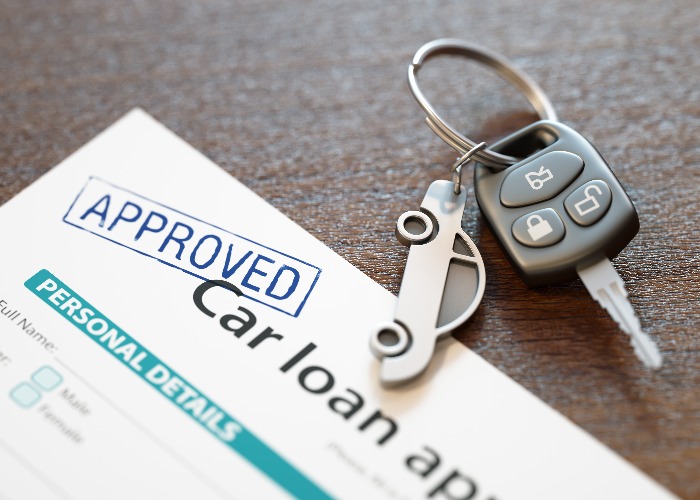Sub-prime loans: could cars cause the next financial crash?

A looming sub-prime car loans crisis in the US could trigger another global financial crash, experts have warned.
Fears of a sub-prime car loans crisis intensified this week after it was revealed that a number of international banks have throttled back their exposure to the US car finance market amid fears borrowers could struggle to meet repayments.
Many are concerned the borrowing practices that have fuelled the recent boom in global car finance have worrying similarities to the sub-prime mortgage crisis a decade ago.
In March, Santander Consumer USA – the largest player in the sub-prime space – was fined more than £20 million by US authorities for lending money to borrowers who they knew could not keep up with the repayments.
More recently, rating agency Moody's noted that Santander Consumer had verified income on just 8% of applicants for car loans.
Hardly surprising then, that some are suggesting the splurge on new wheels is a “warning light” that trouble is just around the corner.
And it may be too late to slam on the brakes.
Car insurance about to expire? Compare policies on loveMONEY
Britain has caught the borrowing bug again
Buying a car is not exactly cheap. While sales of new cars have risen, so too has the amount we are borrowing in order to buy them.
Last year a record 2.7 million new cars were bought in this country, the fifth straight year of rising sales.
According to the Finance & Leasing Association, motorists in the UK borrowed a mammoth £31.6 billion to fund those car purchases last year, also a new record.
And that should be a ‘flashing light’, according to the investment bods at Schroders.
Fund manager Andrew Evans, writing on the firm’s blog, pointed out that borrowing on a depreciating asset, like a car, is a “very bad idea”.
He added: “One of the big issues with car financing is the reliance the whole system places on the value of second-hand cars.
As soon as this value drops, it means somebody is missing out and – whether that is the car-financing company or the person who has purchased the car – that means there is a serious level of fragility built into the system.”
Still, as long as everybody keeps up with their repayments, everything will be fine and dandy right?
Compare car insurance policies. Don't overpay!
But the real problem lies in the US
Car sales – and loans – have also rocketed over the other side of the Atlantic, but so have missed payments on those loans.
The Federal Reserve Bank of New York says that as many as six million Americans are at least 90 days behind on their car loans.
It has previously said: “The worsening in the delinquency rate of sub-prime auto loans is pronounced, with a notable increase during the past few years.”
What’s more, these loans are being packaged up as asset-backed securities, given ratings by credit rating agencies and then sold onto investors.
At the risk of coming over like Morrissey, stop me if you think that you’ve heard this one before...
Is this the next crash?

Honestly, it’s difficult to say right now. First of all, let’s be clear; cars and houses are very different as assets; banks are simply nowhere near as exposed on car loans as they were on mortgages back in 2007 when the entire financial system crashed.
And industry figures here are at pains to point out that defaults on car loans in the UK are very small, certainly compared to the States.
But if it does all come crashing down, it will hurt.
Manufacturers will take a big hit, and as the Bank of England pointed out in a recent article, “the car industry’s fortunes play an important part in the stability of the broader economy” as it accounts for over 4% of GDP.
Here is how the Bank concluded that article: “Industry innovation in the area of finance has been great news for consumers — a greater percentage of us can now drive the more expensive car brands – but as the industry constantly chases targets, volume and market share, it becomes increasingly vulnerable to shocks.”
Given the events of the last 18 months, who would honestly suggest there aren’t further economic shocks on the horizon?
If there are, it may not just be those who have overstretched for that shiny new motor that feel the pain.
More motoring articles on loveMONEY:
Comments
Be the first to comment
Do you want to comment on this article? You need to be signed in for this feature